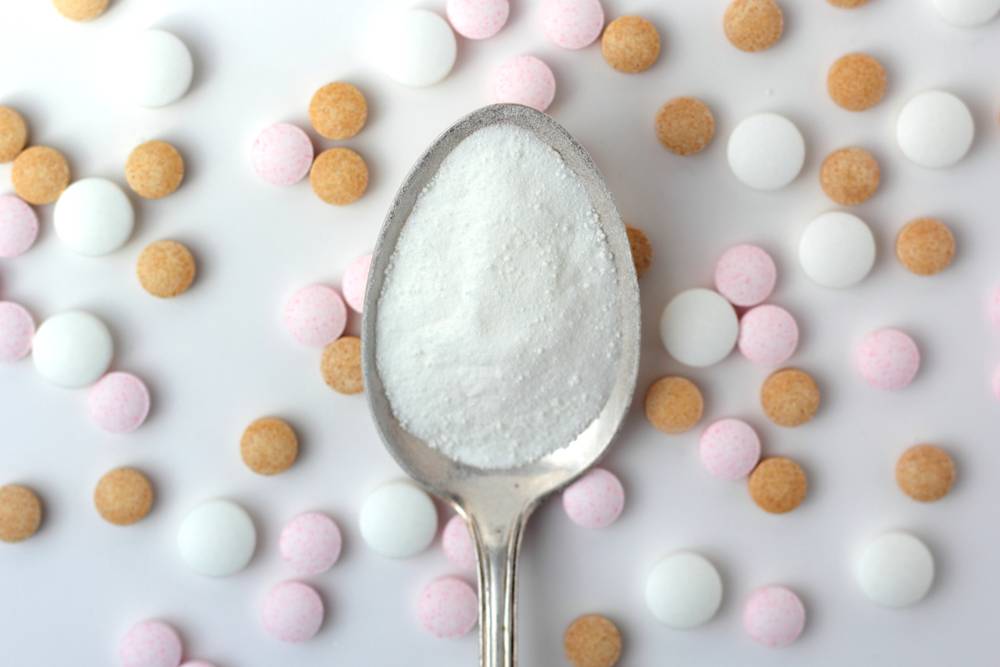Inositol, a naturally occurring substance in our body, has recently gained popularity as a potential weight loss supplement.
While some social media influencers claim inositol as a game-changer, others warn against the dark side of the diet fads. In this article, we take a medical perspective to investigate whether inositol can genuinely aid in weight loss.
What is Inositol?
Inositol is a type of sugar alcohol, found in many fruits, beans, grains, and nuts. It is also present in our body, where it serves various functions, such as cell signalling, nerve transmission, and insulin sensitivity. In supplement form, inositol typically comes as myo-inositol or d-chiro-inositol.
Inositol supplements can be taken orally in powder, capsule, or tablet form. The recommended dosage may vary depending on the specific health condition being treated and the type of inositol used. It is important to note that inositol supplements are not regulated, so it is essential to purchase them from reputable brands and follow the recommended dosage instructions. Additionally, it is always recommended to consult with a healthcare provider before starting any new supplement or medication.
A Trending Supplement on Social Media?
On social media, inositol has become a buzzword among wellness enthusiasts, particularly those with Polycystic Ovary Syndrome (PCOS). PCOS is a hormonal disorder that affects around 10% of women, leading to irregular menstrual cycles, weight gain, and insulin resistance.
Some studies have suggested that inositol supplements may improve insulin resistance and menstrual regularity in women with PCOS, thereby aiding weight loss.
The Benefits of Inositol
Apart from PCOS, inositol has shown potential benefits for other health conditions. For example, studies suggest that inositol supplements may reduce symptoms of anxiety and depression by regulating neurotransmitters in the brain. Inositol may also improve fertility and sperm quality in men. Furthermore, inositol appears to be safe and well-tolerated in most people, with rare side effects such as nausea and diarrhoea.
The Dark Side of Diet Fads
While inositol may offer some health benefits, it is not a magic pill for weight loss. Many social media influencers market inositol as a quick fix for shedding pounds, without addressing the root cause of excess weight gain.
Moreover, inositol supplements are not regulated by the Food and Drug Administration (FDA), which means that the purity and quality of the products may vary. Some supplements may contain harmful additives, fillers, or contaminants that can do more harm than good.
Losing weight healthily
If you are looking to lose weight healthily, there is no substitute for a balanced diet and regular exercise. Eating a variety of whole foods, including fruits, vegetables, lean protein, and whole grains, can provide your body with the nutrients it needs to function optimally.
Exercise can help burn calories, improve metabolism, and boost mood and energy levels. Additionally, getting enough sleep, managing stress, and avoiding smoking and excessive alcohol consumption can also support weight loss efforts.
Inositol is a promising supplement that may have some health benefits, including aiding weight loss in women with PCOS. However, it is not a miracle cure, and its effects on weight loss in general are still inconclusive. As with any supplement, it is crucial to consult with a healthcare provider before starting inositol or any other supplement, especially if you have a medical condition or take medication. Ultimately, maintaining a healthy lifestyle through proper nutrition, exercise, and self-care is the best way to achieve and sustain a healthy weight.

